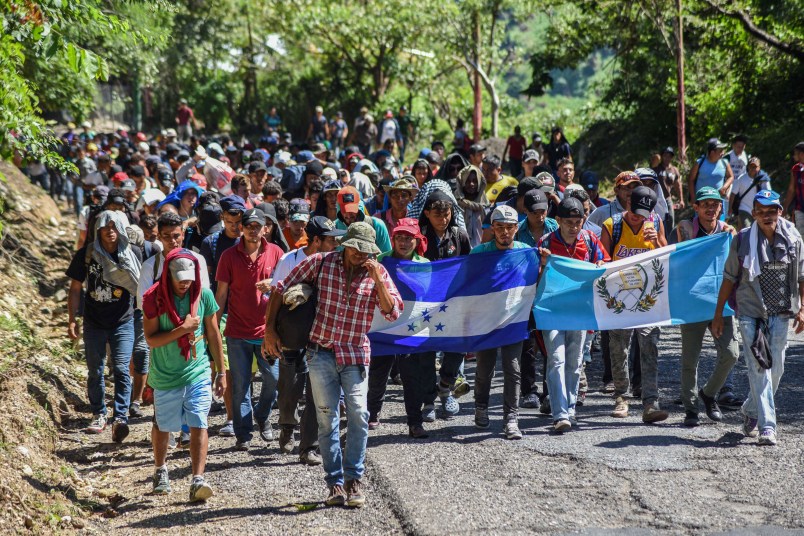Here’s a very, very interesting Buzzfeed article which reports that a fake Facebook account appears to have had an important role stirring up the Honduran immigrant caravan which coincided almost precisely with the 2018 midterm election. Facebook has admitted the account was an imposter account impersonating a prominent Honduran politician. But it is refusing to release information about the account, who may have set it up or what country it originated from.
For starters, it’s important to note that whatever the role of this account or others that may come to light, it didn’t create the Honduras’ emigration crisis that goes back to the later years of the Obama administration. There have been other ‘caravans’, the main point of which is to give migrants safety in numbers and not be prey to criminals and gangs on the journey north. But the timing of the October/November 2018 event has always been suspect.
During the height of the news fever back in October I reached out to a prominent US pro-immigration activist and asked this person, ‘Am I crazy to be suspicious that you’ve got the biggest caravan yet heading north timed almost perfectly for the final weeks of the US election?’ The answer was very interesting. It was basically, ‘Yeah, we’re all very suspicious but there’s no clear evidence that it hasn’t grown up organically.’
One of the things that seemed so odd to me was that if you’re an immigrant looking to escape the runaway murder rate and gang and paramilitary violence in Honduras, the worst possible time to make the attempt would be in the final days of a US election campaign in which the government has every incentive to make an example of you to show its anti-immigrant bona-fides. Like you may or may not make at another, less election focused time. But you’re definitely not getting into the country when Donald Trump is trying to use you as a scare cudgel to salvage control of Congress.
What this person told me was that that wasn’t that hard to understand. From years working with people in the region this person told me, you’d just be surprised. They’re not as versed on the internal dynamics of our politics as you might think. This was a valuable corrective to my myopia and lack of perspective. I don’t know much about the internal dynamics of their politics and they don’t know ours.
Still the person I was speaking to remained pretty suspicious. There just wasn’t any evidence that it wasn’t growing up in the way other immigrant caravans have over recent years.
Now we get to this Buzzfeed article. The account was created about a week before the caravan departed and impersonated a man named Bartolo Fuentes who Buzzfeed identifies as “a Honduran activist, journalist, and former lawmaker.” The subtleties to the story are important. Fuentes was initially skeptical about this particular caravan. It wasn’t getting much attention. But it caught on so dramatically that he eventually joined it for a period of time, not as a prospective immigrant but as a supporter.
The account mainly used Facebook messenger to communicate with other influential figures in Honduras and confirm Fuentes’ support of the effort. In Buzzfeed’s reconstruction, this bogus account didn’t start the effort and actually kicked off just after the efforts to organize it got underway. But before the account got started not many people seemed to be joining. Only after the account kicked into gear did enthusiasm and participation spike. The account also claimed falsely that the caravan was being led by a migrant rights organization called Pueblo Sin Fronteras. Later, once the caravan swelled to a massive scale, the Pueblo Sin Fronteras did get involved, though in a support rather than leadership role.
The relevant point though is that it wasn’t true when the imposter account falsely spread the word.
It appears that this account helped the caravan gain key momentum to the point where its size became a self-fulfilling prophecy, spurring even more to join and groups which hadn’t been supportive to get involved.
So far, it seems like we only know about this single account. It’s hard to believe one Facebook account could play that decisive a role. But the account seems to have been sophisticated. And it is equally difficult to believe that a sophisticator operator or organization would have gone to such trouble and limited their efforts to a single imposter account.
The forces leading people to risk everything to leave Honduras are real and not going anywhere. But the timing of that caravan has always strained credulity. This requires a lot more scrutiny.






